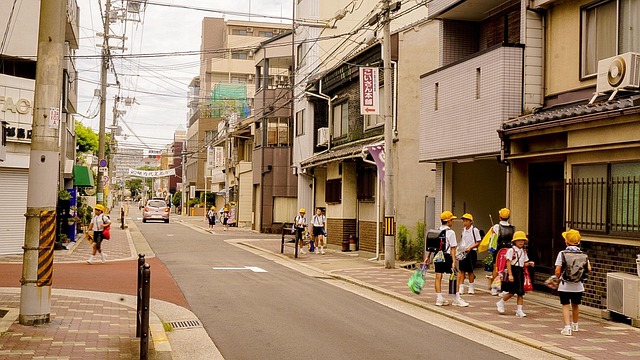Understanding your needs and budget is key when searching for affordable student housing or off-campus rentals. Students should create a prioritized list of requirements and consider student housing tips from a comprehensive student accommodation guide. This ensures they find the best balance between location, price, and desired amenities. When reviewing rental contracts, pay close attention to lease terms, payment clauses, maintenance expectations, rules, and restrictions to ensure financial stability and a positive student housing experience.
“Navigating the world of off-campus rentals can be an exciting yet daunting task for students seeking affordable housing. This comprehensive student housing guide is designed to empower you with the tools needed to secure your dream college apartment. From understanding budget constraints and identifying key contract elements to mastering the art of safe renting, we’ll walk you through every step. Discover valuable tips on evaluating off-campus housing contracts, ensuring a smooth transition into your new living space while keeping costs manageable.”
- Understanding Your Needs and Budget for Affordable Student Housing
- Key Elements to Review in Off-Campus Rental Contracts
- Strategies for Securely Navigating the Student Accommodation Process
Understanding Your Needs and Budget for Affordable Student Housing

Understanding your needs and budget is a crucial first step when searching for off-campus rentals or affordable student housing. Students often have varying requirements, from proximity to campus to amenities and extra space for studying or socializing. It’s essential to create a list of priorities to guide your search. This student housing tip can help you focus on what’s most important: is it better to live closer to campus or save money by choosing a more affordable neighborhood?
Budgeting is another critical aspect. Renting for students often involves managing a limited financial resource, so it’s important to have a clear understanding of your financial situation and the current market rates for off-campus accommodations. A student accommodation guide can be useful in navigating the college apartment search process, ensuring you find the best balance between location, price, and amenities that fit your needs and budget.
Key Elements to Review in Off-Campus Rental Contracts

When evaluating off-campus rental contracts as a student, it’s crucial to pay close attention to several key elements that will impact your living experience and financial stability. Firstly, review the lease terms thoroughly, ensuring you understand the duration of stay, renewal policies, and any penalties for early termination or damage to the property. Affordable student housing often comes with flexible lease options, so knowing these details is essential for budgeting and planning.
Secondly, scrutinize the payment clauses, including rent due dates, accepted methods, and late fees. Check if there are additional costs like utilities, internet, or parking that are included or billed separately. A comprehensive student accommodation guide should also outline expectations regarding maintenance and repairs; it’s helpful to know who is responsible for what and how quickly issues are addressed. Lastly, review the rules and restrictions, especially those related to guests, pets, and quiet hours, as these can vary widely between off-campus rentals.
Strategies for Securely Navigating the Student Accommodation Process

Navigating the student accommodation process can be overwhelming, especially when exploring off-campus rentals. Here are some strategies to ensure a smooth and secure experience during your college apartment search. Firstly, familiarize yourself with local rental laws and regulations specific to affordable student housing. Understanding your rights and obligations as a tenant is crucial for avoiding any potential pitfalls. Many cities offer resources and guides tailored for students looking for off-campus rentals.
Secondly, thoroughly vet potential landlords and properties before signing any contracts. Research the reputation of the landlord, check references from previous tenants, and pay attention to red flags such as hidden fees or unclear terms. A comprehensive student housing tip is to ask about utility costs and who is responsible for their payment. Additionally, ensure you have a clear understanding of the lease agreement, including move-in and move-out procedures, subletting rules, and any restrictions on pets or guests. This student accommodation guide will help you make informed decisions during your college apartment search.






